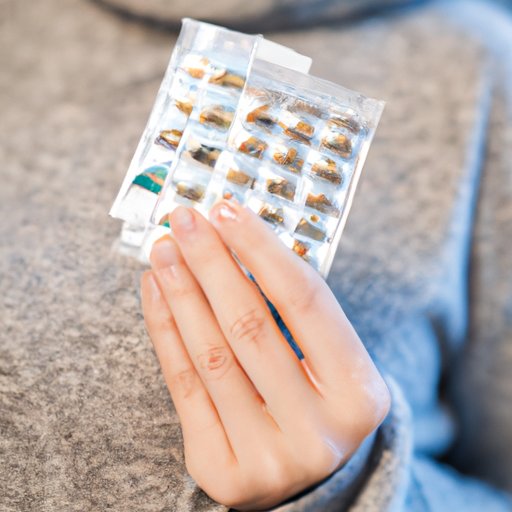
Introduction
Getting your tubes tied, also known as tubal ligation, is a popular form of birth control for women who no longer want to have children. However, a common misconception is that getting your tubes tied guarantees that you won’t get pregnant. But is that really true? In this article, we’ll explore this question and provide information and support for women who have encountered this problem.
Addressing the Common Misconception
Contrary to popular belief, getting your tubes tied does not guarantee that you won’t get pregnant. Although tubal ligation is a highly effective form of birth control, mistakes can still happen during the procedure. For example, tubes may grow back together or form a new opening that allows an egg to be fertilized by sperm. Additionally, a woman may have her tubes tied and still become pregnant due to a failed sterilization procedure or a misdiagnosis of pregnancy.
There are documented cases where women have become pregnant despite having their tubes tied. In fact, according to the American College of Obstetricians and Gynecologists, the risk of becoming pregnant after tubal ligation is about 1 in 200 women.
Alternative Birth Control Options
If you’re concerned about the possibility of getting pregnant after having your tubes tied, there are alternative birth control options available. These include hormonal birth control methods such as the pill, patch, or ring, intrauterine devices (IUDs), condoms, and natural family planning methods.
It’s important to note that each option has its benefits and drawbacks, so it’s important to make an informed decision about what will work best for you. For example, hormonal birth control methods can have side effects such as weight gain, mood swings, and an increased risk of blood clots. IUDs, on the other hand, can increase the risk of certain types of infections.
The Importance of Communication with Your Doctor
When considering tubal ligation or any form of birth control, it’s important to talk to your doctor. They can help you make an informed decision about what method will work best for you. Before the procedure, your doctor can explain the risks and benefits of tubal ligation and answer any questions you may have.
Even after having your tubes tied, it’s important to continue communication with your doctor. If you experience any symptoms of early pregnancy, such as missed periods, nausea, or breast tenderness, seek medical attention immediately. Your doctor can perform a pregnancy test and evaluate you for an ectopic pregnancy.
When talking to your doctor, it’s important to express your concerns and ask questions. If you feel that your concerns are not being taken seriously, consider getting a second opinion from another healthcare provider. Effective communication with your doctor is key to ensuring your reproductive health.
The Risk of Ectopic Pregnancy
An ectopic pregnancy occurs when a fertilized egg implants outside of the uterus, typically in a fallopian tube. Ectopic pregnancies can be life-threatening if not detected and treated early. Women who have had their tubes tied are at an increased risk of having an ectopic pregnancy, as tubal ligation can increase the risk of a fertilized egg implanting in the fallopian tubes.
If you experience any symptoms of early pregnancy after having your tubes tied, such as vaginal bleeding, abdominal pain, shoulder pain, or lightheadedness, seek medical attention immediately. These symptoms may indicate an ectopic pregnancy and require prompt treatment.
Sharing Personal Stories
Experiencing an unexpected pregnancy after getting your tubes tied can be a confusing and overwhelming experience. Sharing your personal story can help educate and support others who may be going through the same ordeal. Personal stories can also help break the stigma surrounding reproductive health issues and empower women to take control of their reproductive health.
Empathizing with readers and offering hope and encouragement can go a long way in providing support. It’s important to let women know that they are not alone and that there are resources available to assist them.
Empowerment and Support
Feeling empowered and supported throughout your reproductive journey is crucial. It’s important to take control of your reproductive health by educating yourself about different birth control options, communicating effectively with your doctor, and seeking out resources and support networks. Organizations such as Planned Parenthood and the National Women’s Law Center offer reliable information and resources for women seeking reproductive healthcare.
Conclusion
Experiencing pregnancy after getting your tubes tied can be a complex and emotional experience. It’s important to understand that tubal ligation does not guarantee that you won’t get pregnant. Alternative birth control options, effective communication with your doctor, and seeking out resources and support can help empower you to take control of your reproductive health.
Remember, if you experience symptoms of early pregnancy or have concerns about your reproductive health, don’t hesitate to seek medical attention. You are not alone, and there is support available for you.
Sources:
- https://www.acog.org/womens-health/faqs/tubal-ligation
- https://www.mayoclinic.org/tests-procedures/tubal-ligation/about/pac-20388360
- https://www.ncbi.nlm.nih.




